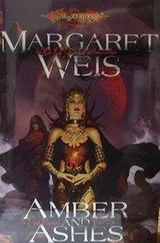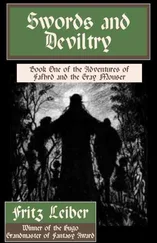J. Clements - Spartacus - Swords and Ashes
Здесь есть возможность читать онлайн «J. Clements - Spartacus - Swords and Ashes» весь текст электронной книги совершенно бесплатно (целиком полную версию без сокращений). В некоторых случаях можно слушать аудио, скачать через торрент в формате fb2 и присутствует краткое содержание. Жанр: Исторические приключения, на английском языке. Описание произведения, (предисловие) а так же отзывы посетителей доступны на портале библиотеки ЛибКат.
- Название:Spartacus: Swords and Ashes
- Автор:
- Жанр:
- Год:неизвестен
- ISBN:нет данных
- Рейтинг книги:5 / 5. Голосов: 1
-
Избранное:Добавить в избранное
- Отзывы:
-
Ваша оценка:
- 100
- 1
- 2
- 3
- 4
- 5
Spartacus: Swords and Ashes: краткое содержание, описание и аннотация
Предлагаем к чтению аннотацию, описание, краткое содержание или предисловие (зависит от того, что написал сам автор книги «Spartacus: Swords and Ashes»). Если вы не нашли необходимую информацию о книге — напишите в комментариях, мы постараемся отыскать её.
Spartacus: Swords and Ashes — читать онлайн бесплатно полную книгу (весь текст) целиком
Ниже представлен текст книги, разбитый по страницам. Система сохранения места последней прочитанной страницы, позволяет с удобством читать онлайн бесплатно книгу «Spartacus: Swords and Ashes», без необходимости каждый раз заново искать на чём Вы остановились. Поставьте закладку, и сможете в любой момент перейти на страницу, на которой закончили чтение.
Интервал:
Закладка:
She rested her hand on his shoulder, thought better of it, and returned with a damp cloth, dabbing fitfully at the grime on his torso.
“It gladdens my heart to see that you yet live.”
There was another shudder, but still no reaction from his eyes. She waved her hand experimentally in front of his face, but got nothing save the faintest touch of his labored breath.
“The gods will see you well,” she said.
The door opened.
“Domina!” the medicus exclaimed.
“Medicus,” she said half-laughing, half-gasping. “I only thought to-”
“It does you credit that you take such eager interest in your chattels!” the medicus said, oblivious.
Lucretia drew herself to her full height, the cloth forgotten, her softened features hardening into a businesslike demeanour.
“Crixus is valuable investment,” she said, coldly. “If he cannot fight again, the House of Batiatus will have lost substantial sum.”
“Further calculated by your presence here,” the medicus said, “following long journey from Neapolis.”
“Calculations made greater with the cost of your life if Crixus falls,” Lucretia spat.
And with that she was gone.
On the table, the still form of Crixus seemed to twitch in his open-eyed sleep.
“I only hope,” the medicus said, “the gods watch over you as closely as your mistress.” He lifted the bandage on the stomach, wincing at the sight of the festering wound.
“Ashur,” Varro called. “Ashur!”
The nervy Syrian ducked into an alcove in fear, peering behind him to determine the identity of the man that sought him.
“Cease tongue,” he hissed. “Barca seeks me out, eager for winnings from the last game in Capua.”
“I care not,” Varro said. “I seek you, too, not to take coin but to give it.”
“To what end?” Ashur said, straightening himself and dusting off his robe.
“I seek the company of a woman,” Varro said. “The finest woman you can in the flesh markets, and bring her to the ludus for my enjoyment.”
“I shall see it done,” Ashur said. “And welcome the opportunity to be absent the ludus a few moments longer.”
He made as if to leave, only for Varro to stay his hand.
“And Ashur,” Varro said, “make her a Greek.”
“I have kept them well,” Pietros said.
“So I see,” Barca said, gently caressing the head of a white bird. He placed it back into its cage and securely fastened the door.
“And you, have you kept well?” Pietros said scowling, his gaze fixed on Barca’s bandage.
“It is but scratch,” Barca said with a shrug.
Pietros flung himself into Barca’s arms, his head nestling against the gladiator’s chest.
“I had a dream while you were away.”
“A dream is a dream, gone by morning.”
“I saw you gutted and still, lying in water, your blood seeped away. I feared that I would never see you again.”
“I am here, Pietros. Safely returned.”
“I gave Naevia coin for offering. To hasten your safe return.”
“Mercury is no god of mine,” Barca said gruffly.
“He is the god of all travelers, whether they believe in him or not.”
Barca tightened his arms around Pietros and stroked the boy’s curly hair.
“I, too, had a dream, Pietros,” he said. “You were happy. You and I stood as freemen near where Carthage once stood. Rome’s new colony close by. We were out in fields, wringing crops from red dust.”
“Both of us?”
“Yes. My arena battles having bought freedom for us both. Our toil and sweat turned us into farmers.”
“It is a long way from the ludus and the arena.”
“It is not a long way,” Barca said. “It is but days away. Ashur owes me the balance of the coin I require. We have but another day in chains, but perhaps years of labor.”
“But labor as freemen.”
“As freemen. Now, is that a better dream?”
“It is.”
The rains pelted down, as they had done for days. But Batiatus breathed deeply and smiled.
“The festering odors of Neapolis,” he said, “replaced by the land of my fathers.”
He looked at Spartacus for acknowledgment, and saw only a Thracian deep in thought.
“Put the fate of the Getae witch from your mind, Spartacus. She died as she wanted, costing a good Roman precious coin. Costing me precious coin!”
“I think only of her portents of posterity.”
“Pay it no heed. She was a charlatan. A barbarian mumbling of futures yet unseen to earn her keep.”
“She offered a future for Rome, to replace that lost in the Capitoline fire.”
“Tailored no doubt to her audience, as any good conjuror does. Mention of Thrace purely because you were at her side. Mention of greater Greece simply because that was where we found ourselves, close to the heel and toe of Italia.”
“And what kind of legion is ‘hell-bound’?”
“Any legion in Neapolis, considering the Vulcan caves of its surroundings.”
“A Saturnalia?”
“A final Saturnalia! Slaves and masters changing places. What better incitement for an audience in chains to pay to hear more?”
“But she was dying. There was nothing for her to gain.”
“Nothing save seeds of discord sown from the afterlife. ‘Seven hills’ in peril! Indeed! She speaks of the seven hills of Rome knowing that it will affright good citizens as dogs bark at horses. It surprises me, Spartacus, that you dwell on such artifice and contradictions.”
“Apologies, dominus.”
“Ah, but now I see. She told you something else , did she not?”
“She said that I would see my wife again.”
“And if that prophecy is to be believed, then you must accord unwarranted credence to her other utterings. Peace, Spartacus, you shall see your wife again because I, Batiatus, have willed it so. Not the Fates. And not a dying savage. Now, prepare yourself. I predict that I shall proclaim you as the Champion of Capua. And that is a prophecy that shall surely come to pass.”
Sailors called it the Afer Ventus, the wind out of Africa. Sometimes it brought dry dust that stung the throat and clung to the clothes. Sometimes it brought blustery days and clouds that sped across the sky like sheep fleeing Apollo. Sometimes it brought ships.
Household slaves cursed it for the dirt it brought to laundry drying on lines. Sailors from the east welcomed it for the opportunity it offered, even as it grew stormy. Sail past the toe of Italia, into Sicilian waters, and you were sure to meet the Afer Ventus blowing toward the north-east. Even if it rained, even if the waters rose and swelled like Neptune in anger, you could point your ship at the coast of Italia and ride ahead of the storm.
No ships were leaving Neapolis. The storms were too dangerous, the risk too great. One might, if one were religiously inclined, burn incense and make offerings at temples of Neptune and Mercury, but the priests were always disconcertingly vague about the amount required to guarantee safe passage. Better to ride it out in the harbor, or send goods along the soggy land routes.
But some ships still dared to arrive. Some ships, caught at sea as the storms rose, chose to forge on ahead to their destination, heedless of the rain, fearless, or at least apparently fearless, of the danger to life and limb.
This was one such ship. This was the last ship likely to arrive for at least a week. She had been a dot on the horizon, but her sails swiftly grew in size. When they were visible through the pitching waters-and they frequently were not-they bobbed on the horizon, but grew ever closer to the safe haven of Neapolis.
Her sailors drew in her sailcloths. They threw lines to the slave-rowed cutters that towed her in. They steered her to the best of their abilities as the rope-ringed hull thumped noisily against the similarly wrapped dockside. On land and on deck, the sailors heaved on ropes, lashing the ship against the shore, lest Neptune have one final laugh by dashing the vessel against the land.
Читать дальшеИнтервал:
Закладка:
Похожие книги на «Spartacus: Swords and Ashes»
Представляем Вашему вниманию похожие книги на «Spartacus: Swords and Ashes» списком для выбора. Мы отобрали схожую по названию и смыслу литературу в надежде предоставить читателям больше вариантов отыскать новые, интересные, ещё непрочитанные произведения.
Обсуждение, отзывы о книге «Spartacus: Swords and Ashes» и просто собственные мнения читателей. Оставьте ваши комментарии, напишите, что Вы думаете о произведении, его смысле или главных героях. Укажите что конкретно понравилось, а что нет, и почему Вы так считаете.












